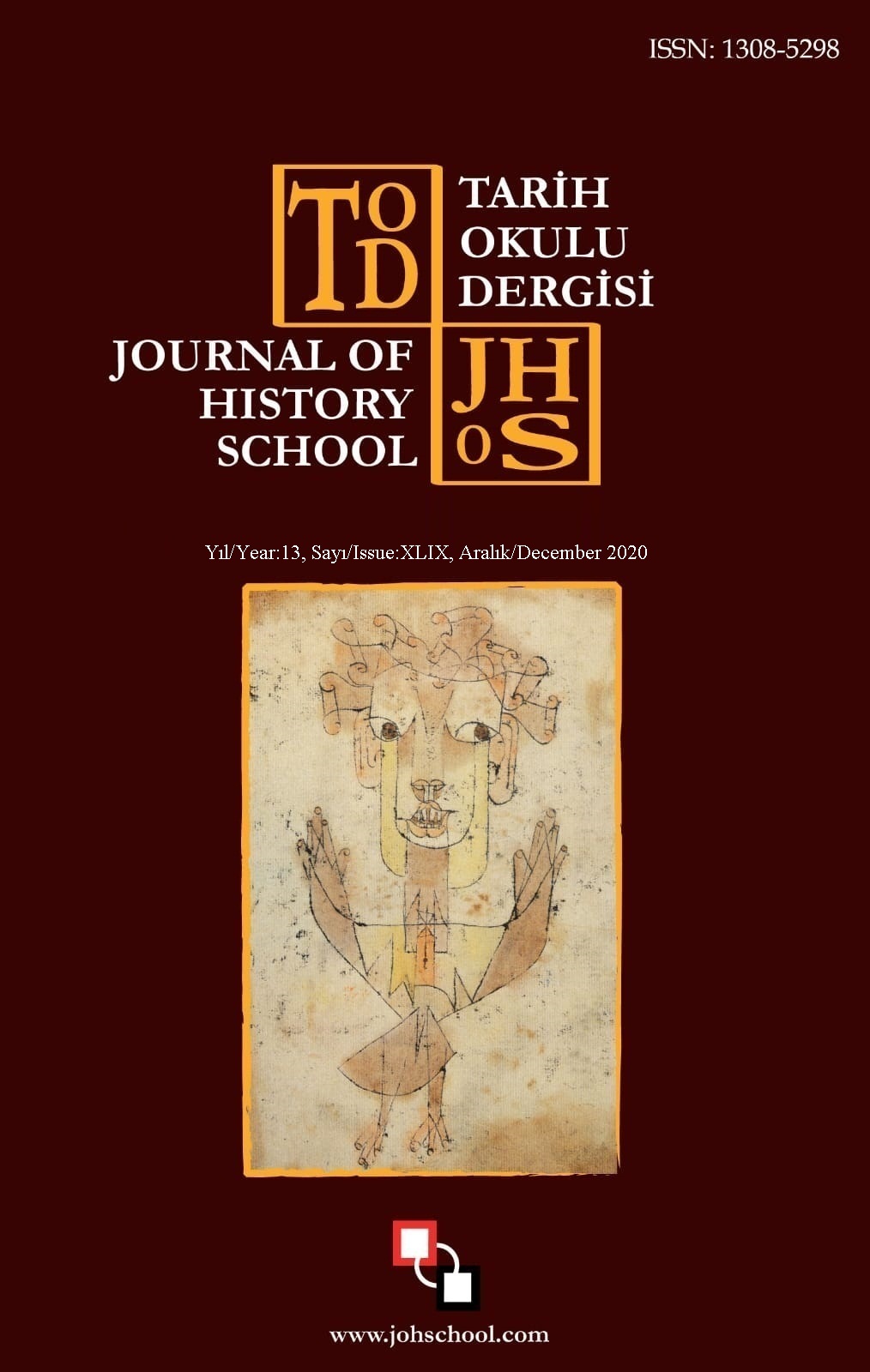Author :
Abstract
2017’de güncellenmiş olan sosyal bilgiler öğretim programında 7 öğrenme alanı, 27 beceri, 18 değer ve 4-7 sınıf arasında toplam 131 kazanım bulunmaktadır (MEB, 2018). Sosyal bilgilerin amacına ulaşması için öğrencilerin yedinci sınıf sonunda sosyal bilgiler öğretim programında yer alan bu öğrenme alanlarına ilişkin içerik, beceri, değer ve kazanımları edinmiş olmaları beklenmektedir. Bu kapsamda öğrencilerin sosyal bilgiler dersinde edindikleri bu öğrenmeleri günlük yaşamları ile ilişkilendirmeleri gerekmektedir. Bu çalışmanın amacı öğrencilerin günlük yaşamları ile sosyal bilgiler arasında kurdukları ilişkiyi incelemektir. Çalışmada nitel araştırma yaklaşımlarından doküman inceleme kullanılmıştır. Araştırmanın çalışma grubunu 2018-2019 öğretim yılında Adıyaman ili merkez ilçede bulunan bir devlet okuluna devam eden 12 gönüllü yedinci sınıf öğrencisi oluşturmaktadır. Çalışma verileri öğrenci günlükleri kullanılarak toplanmıştır. Araştırma kapsamında toplanan günlüklerin çözümlenmesinde betimsel analiz ve içerik analizi birlikte kullanılmıştır. Çalışmada sosyal bilgiler öğretim programında yer alan öğrenme alanları, değerler ve beceriler tema olarak belirlenmiştir. Çalışmada elde edilen bulgular sonucunda öğrencilerin sosyal bilgiler öğretim programında yer alan öğrenme alanlarından en fazla İnsanlar, Yerler ve Çevreler öğrenme alanının içeriği ile günlük yaşamları arasında ilişki kurdukları belirlenmiştir. Ayrıca öğrenci günlükleri incelendiğinde öğrencilerin programda yer alan değerlerden sorumluluk, becerilerden ise dijital okuryazarlık ve medya okuryazarlığı ile günlük yaşamları arasında daha fazla ilişki kurdukları ortaya çıkmıştır.
Keywords
Abstract
There are 7 themes, 27 skills, 18 values and a total of 131 gains between 4-7th grades in the social studies curriculum updated in 2017. To achieve the social studies curriculum’ purpose, students are expected to learn the content, skills, values and gains at the end of the seventh grade. In this context, students should be able to relate the knowledge, skills and values they have learned in social studies with their actual lifes. The aim of this study is to examine the relationship between students' actual life and social studies. Document analysis, one of the qualitative research approaches, was used in this study. The research study group is consists of 12 volunteer seventh grade students who attending a public school in the central district of Adıyaman in the 2018-2019 school year. Data were collected using student diaries. Descriptive and content analysis were used to analyze the diaries collected within the scope of the research. In the study, the social studies themes, values and skills were determined as themes. As a result of the findings, it has been determined that the students mostly establish a relationship between the content of called the People, Places and Environments theme and their actual lifes. In addition, when the student diaries were examined, it was found that the students established more relationships between responsibility from the values in the program, and digital literacy and media literacy with their actual lifes. In addition, when the student diaries were examined, it was revealed that the students established a greater relationship between the responsibility value and their actual lifes. As for the skills, it was revealed that they establish more relationships between digital literacy and media literacy and their actual lifes.





